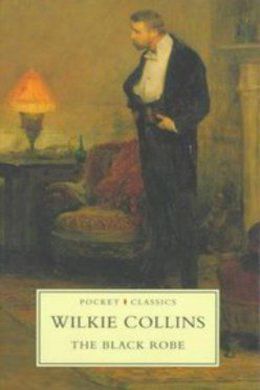
-
EPUB 366 KB
-
Kindle 456 KB
-
Support epubBooks by making a small $2.99 PayPal donation purchase.
Description
It may be that women have no positive appreciation of what is beautiful in form and colour–or it may be that they have no opinions of their own when the laws of fashion have spoken. This at least is certain, that not one of them in a thousand sees anything objectionable in the gloomy and hideous evening costume of a gentleman in the nineteenth century. A handsome man is, to their eyes, more seductive than ever in the contemptible black coat and the stiff white cravat.
425 pages with a reading time of ~6.50 hours (106343 words), and first published in 1881. This DRM-Free edition published by epubBooks, 2009.
Community Reviews
There are currently no other reviews for this book.
Excerpt
In an upper room of one of the palatial houses which are situated on the north side of Hyde Park, two ladies sat at breakfast, and gossiped over their tea. The elder of the two was Lady Loring—still in the prime of life; possessed of the golden hair and the clear blue eyes, the delicately–florid complexion, and the freely developed figure, which are among the favorite attractions popularly associated with the beauty of Englishwomen. Her younger companion was the unknown lady admired by Major Hynd on the sea passage from France to England. With hair and eyes of the darkest brown; with a pure pallor of complexion, only changing to a faint rose tint in moments of agitation; with a tall graceful figure, incompletely developed in substance and strength—she presented an almost complete contrast to Lady Loring. Two more opposite types of beauty it would have been hardly possible to place at the same table. The servant brought in the letters of the morning. Lady Loring ran through her correspondence rapidly, pushed away the letters in a heap, and poured herself out a second cup of tea. “Nothing interesting this morning for me,” she said. “Any news of your mother, Stella?” The young lady handed an open letter to her hostess, with a faint smile. “See for yourself, Adelaide,” she answered, with the tender sweetness of tone which made her voice irresistibly charming—”and tell me if there were ever two women so utterly unlike each other as my mother and myself.” Lady Loring ran through the letter, as she had run through her own correspondence. “Never, dearest Stella, have I enjoyed myself as I do in this delightful country house—twenty–seven at dinner every day, without including the neighbors—a little carpet dance every evening—we play billiards, and go into the smoking room—the hounds meet three times a week—all sorts of celebrities among the company, famous beauties included—such dresses! such conversation!—and serious duties, my dear, not neglected—high church and choral service in the town on Sundays—recitations in the evening from Paradise Lost, by an amateur elocutionist—oh, you foolish, headstrong child! why did you make excuses and stay in London, when you might have accompanied me to this earthly Paradise?—are you really ill?—my love to Lady Loring—and of course, if you are ill, you must have medical advice—they ask after you so kindly here—the first dinner bell is ringing, before I have half done my letter—what am I to wear?—why is my daughter not here to advise me,” etc., etc., etc. “There is time to change your mind and advise your mother,” Lady Loring remarked with grave irony as she returned the letter. “Don’t even speak of it!” said Stella. “I really know no life that I should not prefer to the life that my mother is enjoying at this moment. What should I have done, Adelaide, if you had not offered me a happy refuge in your house? My ‘earthly Paradise’ is here, where I am allowed to dream away my time over my drawings and my books, and to resign myself to poor health and low spirits, without being dragged into society, and (worse still) threatened with that ‘medical advice’ in which, when she isn’t threatened with it herself, my poor dear mother believes so implicitly. I wish you would hire me as your ‘companion,’ and let me stay here for the rest of my life.” Lady Loring’s bright face became grave while Stella was speaking. “My dear,” she said kindly, “I know well how you love retirement, and how differently you think and feel from other young women of your age. And I am far from forgetting what sad circumstances have encouraged the natural bent of your disposition. But, since you have been staying with me this time, I see something in you which my intimate knowledge of your character fails to explain. We have been friends since we were together at school—and, in those old days, we never had any secrets from each other. You are feeling some anxiety, or brooding over some sorrow, of which I know nothing. I don’t ask for your confidence; I only tell you what I have noticed—and I say with all my heart, Stella, I am sorry for you.” She rose, and, with intuitive delicacy, changed the subject. “I am going out earlier than usual this morning,” she resumed. “Is there anything I can do for you?” She laid her hand tenderly on Stella’s shoulder, waiting for the reply. Stella lifted the hand and kissed it with passionate fondness. “Don’t think me ungrateful,” she said; “I am only ashamed.” Her head sank on her bosom; she burst into tears. Lady Loring waited by her in silence. She well knew the girl’s self–contained nature, always shrinking, except in moments of violent emotion, from the outward betrayal of its trials and its sufferings to others.
